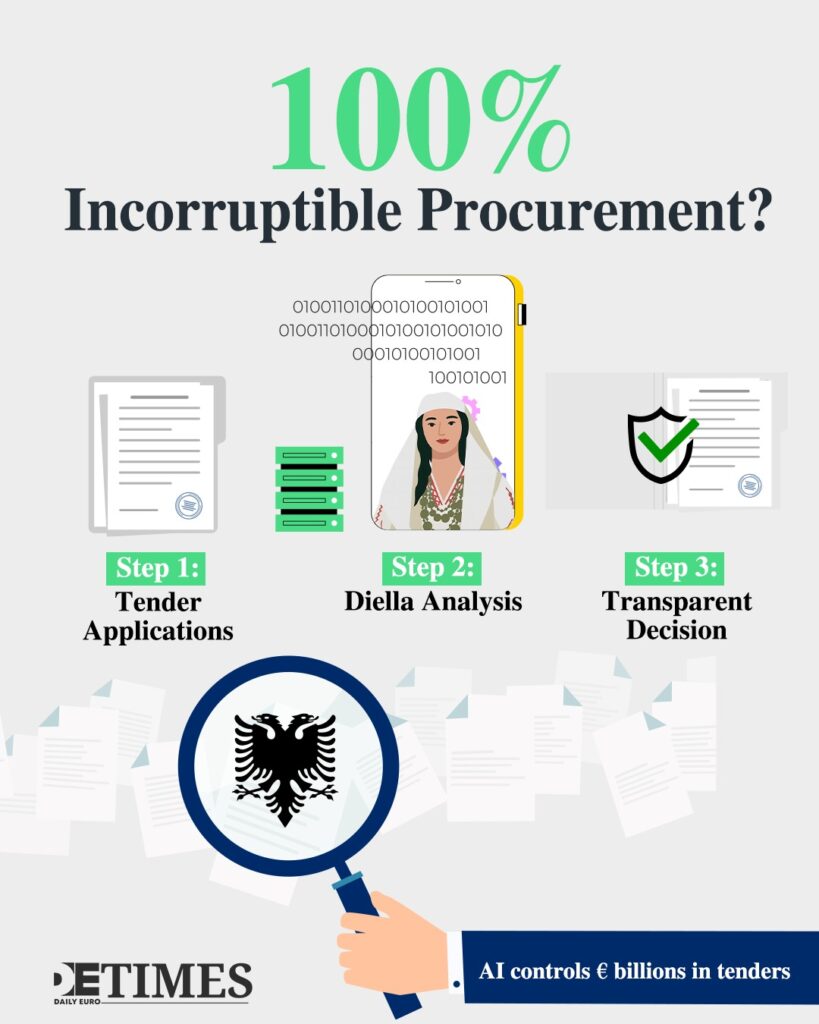Albania has become the first country in the world to appoint an AI government minister.
The virtual minister, named Diella, which means “light” in Albanian, was unveiled by Prime Minister Edi Rama on 11 September, 2025. Her main task is to combat corruption in public procurement and ensure full transparency of tender procedures.
Diella’s Role in Public Administration
Diella has already proven herself as an effective digital assistant on the e-Albania platform, where she helped citizens obtain more than a million digital documents and provided about 1,000 online services. Now she will be responsible for all public tenders, analyzing applications based on objective criteria and excluding the human factor.
Prime Minister Rama emphasised that Diella's appointment is a step towards creating a "100% incorruptible" public procurement system in line with European Union standards.
Opposition Reaction and Legal Issues
The move has sparked mixed reactions. The opposition Democratic Party has questioned the legality of the appointment, calling it “symbolic” and “unconstitutional.” Legal experts say it would require legislative changes to formally recognise Diella’s role in the government.
International Resonance and Expectations
Diella’s appointment has attracted international attention, with many seeing the move as a breakthrough experiment in digital governance and the fight against corruption.
Albania, which aims to become a full EU member by 2030, hopes that the successful implementation of the AI ministers project will help strengthen its position as a accession member and future global leader.
Diella’s project demonstrates how technology can transform public administration. If the experiment is successful, it could become a model for other countries seeking to increase transparency in public procurement and minimise corruption.

Technicalities
The AI Diella is based on complex machine learning algorithms and big data analysis, which allows it to check public tenders for compliance with objective criteria. The system analyses applications, identifies suspicious patterns and anomalies that may indicate corruption, excluding the influence of the human factor.
The algorithms evaluate suppliers based on a variety of indicators: past contracts, financial transparency, compliance with legal requirements and the risk of conflicts of interest. The system was developed jointly by Albanian IT companies and international experts in digital governance.
To assess the effectiveness of the project, it is planned to track tender transparency indicators, the number of violations identified, the time it takes to review applications and the overall level of public trust in the public procurement process.
Diella also learns from new data, improving its forecasts and recommendations.
Read the Latest Articles on DET!
Suez on Rails: China is Changing the Map
Plucked Out of Thin Air? How Meteorologists Name Storms
I Need My Labubu: Wang Ning’s Billion Dollar Toy





